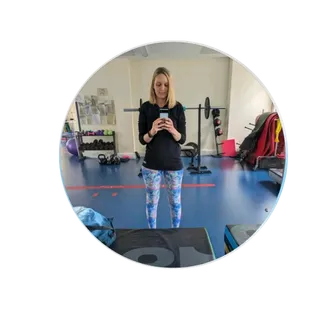Helping You Work With Your Brain, Not Against It
ADHD coaching for real life, whether you’re newly diagnosed, feeling overwhelmed, or just trying to hold it all together.
1:1 support, live group sessions, and practical tools that actually fit how your brain works.

Helping ADHD Minds Find Their Own Way
I’m Fraser, an ADHD coach, father, and former corporate leader who didn’t realise I had ADHD until I was 43.
Like many late-diagnosed adults, I spent years thinking I just wasn’t good enough. I pushed myself hard, burnt out often, and masked my struggles to keep up with a world that didn’t quite fit.
When I finally got diagnosed, everything changed. I stopped blaming myself and started building a life that worked for my brain. Now I help others do the same.
I work with adults who feel overwhelmed, newly diagnosed, or stuck, offering practical strategies, honest conversations, and a place where they don’t have to explain themselves.
Whether it’s 1-to-1 coaching or a structured group programme, the goal is always the same:
To help you feel understood, and to help you move forward.
Does any of this
SOUND FAMILIAR?
You always feel behind, even when you’re working flat out.
There’s a constant mental to-do list running in the background, and even small tasks feel like a mountain.
You’ve been called lazy, disorganised, or too sensitive.
But deep down, you know you’re trying harder than most people realise.
You procrastinate, overthink, and crash hard when you finally stop.
It’s not just time management — it’s emotional exhaustion, decision fatigue, and never feeling like you’re doing enough.
You’ve Googled ‘Do I have ADHD?’ more than once.
Maybe you’ve been diagnosed. Maybe not. But you know something isn’t working, and you’re ready for support that actually makes sense for your brain.

Our Mission
Helping ADHD Adults Feel Less Alone — and More in Control
Whether you're newly diagnosed or have been masking for years, our mission is simple:
Help you understand your brain, stop the spiral of shame, and build a life that actually fits.
How I Can Help
1:1 ADHD
Coaching
Get tailored support with practical tools, calm accountability, and a coach who gets how your brain works.
Perfect if you're ready for personalised help, but not sure where to start.
6-Week ADHD
Group Programme
Live coaching, structure, and a toolkit that actually fits your brain — all in a space where you realise you're not the only one.
Ideal if you want guidance and to hear from others like you.
Free ADHD
Strengths Report
Not ready for coaching? Start with a personalised analysis based on your ADHD traits — and see what’s actually working in your brain.
A zero-pressure way to get insight, hope, and clarity.
What others are saying

"Fraser is awesome"
Fraser is awesome and I enjoyed working with him. He taught me so much and in a way that makes sense to me. He's given me a new found confidence.


"My life changed forever"
He taught me so much and in a way that makes sense to me. He's given me a new found confidence.


"Life was SO hard"
Fraser helped me to turn the waltzers into teacups and calm the chaos, I'm still spinning and dizzy at times but now I get to enjoy the views around me!

Fraser & Cubic write a blog to help you with your ADHD if you aren't ready to reach out for help just yet.

Tips for ADHD Waiting Mode, and How to Use the Time

If you live with ADHD, you probably know the strange mental pause that happens before an upcoming appointment, event, or even a phone call. Your brain doesn’t want to start anything big, but you can’t fully relax either. That stuck, in-between state? That’s waiting mode — and it’s a lot more common than people realise.
I know this feeling inside out. I’ve lived it, and I still do. This post isn’t written from a distance — it’s coming from someone who knows how real and disruptive this can be. Let’s break it down together, understand why it happens, and explore practical strategies to make waiting time work for you, not against you.
What Is ADHD Waiting Mode?
Waiting mode happens when your ADHD brain gets caught between now and "later." You know you have something coming up — maybe a doctor’s appointment, a work meeting, or a call — and suddenly, your mental bandwidth is completely tied up by that one thing.
You can’t focus. You can’t start anything that takes too much energy. And you probably can’t stop checking the clock either.
I’ve lost count of how many times I’ve caught myself staring at the clock, telling myself I "should" be doing something useful, but instead feeling frozen. This is tied closely to time blindness, time agnosia, and executive dysfunction — all common challenges in attention deficit hyperactivity disorder.

Why Does This Happen?
Neurotypical brains can usually chunk time and context switch fairly easily. But with ADHD, executive functioning gets hijacked by even a small disruption in the day. This isn’t laziness or poor time management — it’s a real neurological barrier.
I’ve often built entire days around one looming appointment, convinced I couldn’t "start anything real" until it passed. Here’s why waiting mode feels so intense:
Your brain attaches a sense of urgency to the next thing.
You fear losing track of time and being late.
You struggle to re-engage with a task once interrupted.
You have no clear structure for how long anything takes.
And sometimes, even when you do have time, you don’t trust yourself to use it well. That’s part of life with ADHD. I’ve had afternoons where I knew I had two hours but still couldn’t start anything because it felt like the next task was just around the corner.
The Emotional Toll
Being stuck in waiting mode isn’t just inconvenient — it can be a stressful experience. You might:
Feel guilty for “wasting so much time”
Experience task paralysis
Default to social media or doomscrolling as a coping mechanism
Berate yourself for having a messy to-do list and no motivation
I’ve been there more times than I can count — caught between shame for not being productive and the inability to just "snap out of it." I know what it’s like to be flooded with self-judgment before a therapist appointment, stuck in a cycle of potential mistakes and imagined consequences. Knowing how common and valid this experience is was a game-changer for me.

The Good News
There are effective ways to work with your waiting brain instead of against it. You don't have to fight the feeling — just learn to shift it.
Let’s walk through the best ways to do just that. These are things I use personally — not theoretical ideas, but real tools that have helped me through the fog.
1. Use Brain Dumps to Free Your Mind
Often, what's keeping you stuck is a whirl of unspoken thoughts. A quick brain dump can release that mental noise and help you move forward.
Try this:
Grab paper or open Notes app
Set a 2-minute timer
Write everything on your mind (no order, no judgment)
I do this almost daily — especially when my brain is noisy but I can’t act. This helps reduce attention regulation strain and creates manageable steps from mental chaos.
2. Identify Low-Effort Tasks
Waiting mode is not the time for deep work. But it can be the perfect time for simple tasks that don't drain you.
Make a short list of low-effort tasks, such as:
Folding laundry
Emptying the dishwasher
Checking one item off your to-do list
Sending a quick text reply
Tidying one drawer or counter
These can give you a hit of completion and help build momentum. They also help your brain regain trust that small wins are still worth it.
3. Set Time Anchors
When your brain can't trust time, use external markers. Setting a set time or timer can help combat time blindness and boost action.
Try this:
"I'll do 10 minutes of email before my doctor's appointment."
"I have plenty of time for a small chore. I'll stop at 2:15."
"I'll clean for one song, then stop."
This creates a buffer that makes the task feel safer and more contained.
4. Practice Mindfulness Techniques
Sometimes, what your nervous system really needs is calm. If you're spinning or anxious, try grounding yourself with mindfulness techniques:
Take 5 deep breaths, slowly and intentionally
Focus on one sensation: feet on floor, hands on mug
Say out loud: "I am safe and I am not late."
I resisted mindfulness for years. But honestly? It helps. Not because it fixes ADHD, but because it grounds me just enough to get through the next moment.
5. Redefine Success in the Waiting Period
Your goal isn’t to “get everything done” before your upcoming appointment. Your goal is to soften the edges of the day.
Here’s a new way to think about it:
"Success" is doing manageable steps, not giant leaps
"Progress" is anything that reduces the clutter in your brain
You don’t need a perfect system, just one that works most days
I have to remind myself of this constantly. On days when I can’t do much, doing one thing well still counts.

Next Time You're Stuck...
Remember this:
Waiting times are not wasted times.
You can’t control time perception, but you can control your rhythm.
You’re not alone in this. It’s a real part of attention deficit hyperactivity disorder.
And if all else fails? Take one breath, choose one thing, and do it.
That’s more than enough. It’s what I do too.
Want more tools like this?
If you're looking for practical steps to manage executive dysfunction, make peace with task paralysis, or learn new coping strategies that actually work, my ADHD coaching programme dives deep into all of it. I know how hard this can be because I live it too. With structured support, flexible tools, and real-time guidance, we build routines that fit your brain — not fight against it.
You can take a small step today by signing up for updates. No pressure. No guilt. Just support from someone who truly gets it.
STILL NOT SURE?
Frequently Asked Questions
Do I need a formal ADHD diagnosis to join or get coaching?
Nope. Many people I work with are still figuring it out or self-identify based on lived experience. If you resonate with what you’ve read, you’re welcome here.
What’s the difference between 1:1 coaching and the group programme?
1:1 coaching gives you personalised support, we focus completely on your life, goals, and challenges.
The 6-week group programme gives you live guidance alongside others, so you hear real examples and realise you’re not the only one.
I’m not sure what I need yet. Where should I start?
That’s totally normal. The best starting point for most people is the free ADHD Strengths Report. It gives you insight without pressure, and from there, you can decide if coaching or the course feels right.
Is this like therapy?
No, coaching is future-focused and practical. I’m not a therapist, and I don’t work with severe mental health distress. But I do work with people who feel stuck, lost, overwhelmed, or unsure how to manage day-to-day life with ADHD. If we hit something therapy-related, I’ll help you find the right support.
What if I miss a live session in the group programme?
It happens! You'll still get the tools and resources from that week, and I’ll send a recap. This programme is built with ADHD in mind, so flexibility is baked in.
Can I do both the group and 1:1 coaching?
Absolutely. Many people start in the group to get foundational tools and then move into 1:1 for deeper support. Or vice versa. There’s no wrong order, just what works for you.
How much does it cost?
Group Programme: £200 for the full 6 weeks
1:1 Coaching: £100 per session
Free ADHD Strengths Report: £0 — it’s truly free, no catch
What if I’m not ready to commit yet?
That’s okay. Sign up for the free report, or drop me a message with your questions, follow me on social. No pressure. No guilt. Just support when you’re ready.
Reach Out, No Pressure, No Stress
Whether you're curious about coaching, unsure where to start, or just want to ask a question — I'm happy to hear from you. There's no pressure to sign up or commit. Just send a message and I’ll get back to you soon.
07904 711781

Follow Us
Follow Us
© Copyright 2025. Square Squirrel ADHD Coaching. Powered by The Growth Nest -
